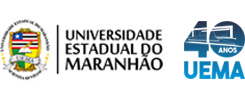Use este identificador para citar ou linkar para este item:
https://repositorio.uema.br/jspui/handle/123456789/4800| Título: | Prática de letramento literário na educação de jovens e adultos como ferramenta para formação de sujeitos crítico reflexivo |
| Título(s) alternativo(s): | Literary literacy practice in youth and adult education as a tool for the formation of critically reflective subjects |
| Autor(es): | Lima, Damaris Gabrielle Pereira do Nascimento |
| Orientador: | Luz, Edma Ribeiro |
| Membro da Banca: | Magalhães, Rayanne de Freitas |
| Membro da Banca: | Santos, Anny Gabrielly Araújo dos |
| Data do documento: | 2024-07-30 |
| Editor: | Universidade Estadual do Maranhão |
| Resumo: | O objetivo desta pesquisa foi abordar sobre as contribuições do letramento literário na Educação de Jovens e Adultos, destacando sua relevância para o desenvolvimento integral dos estudantes nessa modalidade de ensino. Os educandos, que são atendidos pela EJA, ao serem inseridos nessa modalidade de educação precisam de um ensino que lhes possibilite uma formação crítica e reflexiva, capaz de torná-los aptos a agir de forma autônoma. Entretanto, as escolas necessitam desenvolver meios que possibilitem a oferta de uma educação cidadã para estes jovens e adultos, levando em conta os saberes, competências e expectativas. Portanto, buscamos com esta pesquisa não só compreender os benefícios diretos da leitura literária, mas também identificar as práticas e estratégias mais eficazes para a promoção do acesso à literatura e seu potencial transformador, ao abordar sobre este tema lançamos luz sobre a importância de integrar a literatura de forma significativa no currículo da Educação de Jovens e Adultos, planejando não apenas o desenvolvimento acadêmico, mas também o fortalecimento da autoestima desses estudantes assim como a sua criatividade e consciência. Para alcançarmos os objetivos aqui propostos e termos o desenvolvimento desta pesquisa como desejado, contamos com as contribuições de Ângela B. Kleiman (2016) e Ingedore V. Koch (2010) com seus estudos sobre o texto e a leitura enquanto processo interativo entre sujeitos; Magda Soares (2003) e suas abordagens sobre o conceito de letramento e alfabetização; Paulo Freire (1996) e seus estudos sobre a educação, liberdade e autonomia que são imprescindíveis para que seja feita uma educação de qualidade; Rildo Cosson (2011, 2014, 2018 e 2020) abordando sobre letramento literário e a leitura interativa como meio de formação do leitor crítico reflexivo; Terry Eaglenton (2006) e Leyla PerroneMoisés (200 e 2008) sobre a literatura, além de outros autores que fazem parte da escrita deste trabalho |
| Resumo: | The objective of this research was to address the contributions of literary literacy in Youth and Adult Education, highlighting its relevance for the integral development of students in this teaching modality. Students who are served by EJA, when inserted in this education modality, need an education that allows them a critical and reflective formation, capable of making them able to act autonomously. However, schools need to develop means that allow the provision of a civic education for these young people and adults, taking into account their knowledge, skills and expectations. Therefore, with this research we seek not only to understand the direct benefits of literary reading, but also to identify the most effective practices and strategies for promoting access to literature and its transformative potential. By addressing this topic, we shed light on the importance of integrating literature in a meaningful way in the curriculum of Youth and Adult Education, planning not only for academic development, but also for strengthening the self-esteem of these students as well as their creativity and awareness. In order to achieve the objectives proposed here and to have the development of this research as desired, we count on the contributions of Ângela B. Kleiman (2016) and Ingedore V. Koch (2010) with their studies on text and reading as an interactive process between subjects; Magda Soares (2003) and her approaches to the concept of literacy and alphabetization; Paulo Freire (1996) and his studies on education, freedom and autonomy that are essential for quality education; Rildo Cosson (2011, 2014, 2018 and 2020) addressing literary literacy and interactive reading as a means of training the reflective critical reader; Terry Eaglenton (2006) and Leyla Perrone-Moisés (200 and 2008) on literature, in addition to other authors who are part of the writing of this work. |
| Palavras-chave: | Leitura literária na EJA Literatura Letramento literário Formação de sijeitos crítico-reflexivo Literary reading in EJA Literature Literary literacy Formation of critical-reflective subjects |
| Aparece nas coleções: | Curso de Licenciatura em Letras Língua Portuguesa e Literaturas de Língua Portuguesa – Pedreiras UEMA - Monografias |
Arquivos associados a este item:
| Arquivo | Descrição | Tamanho | Formato | |
|---|---|---|---|---|
| TCC - DAMARIS GABRIELLE PEREIRA DO NASCIMENTO LIMA - LICENCIATURA EM LÍNGUA PORTUGUESA - PEDREIRA UEMA 2024.pdf | PDF A | 355.42 kB | Adobe PDF | Visualizar/Abrir |
Os itens no repositório estão protegidos por copyright, com todos os direitos reservados, salvo quando é indicado o contrário.
